Fish Shopping 101: Tips To Buying A Healthy Fish
by Kevin Schweer
Buying a new fish for your aquarium can be both an exciting and nerve-racking experience. Is this fish healthy? Is this fish a good fit for my aquarium? If I get this fish, am I sacrificing another fish down the line? These are a few of the many questions that may pop into your head, and are all very important and relevant. When choosing a new addition for your aquarium, you should consider many things. Here are a few things to consider and look for when choosing the next fish for your aquarium.
Overall health
Choosing a healthy specimen is very important and can/will save you a lot of headaches and money down the line. While not fool proof, there are a few tips for choosing a healthy fish. When looking at a fish you are interested in putting in your aquarium, first examine the fish closely looking for any obvious “defects.” These can be torn fins, strange marks, and obvious disease. Also observe the fish for a bit and see if its behavior seems “normal.” For example, heavy breathing, flashing (rubbing on rocks or substrate), or strange swimming patterns may be signs that this fish is not healthy. If the fish you’re interested in passes the initial observation, it is recommended to ask the staff to feed the fish. The reason for this is to make sure the fish is eating. A fish that does not readily eat is more than likely not in optimal health. This is particularly important with finicky eaters such as butterflies and some angels. If they are eating at the store, it is more likely to eat once in your aquarium, putting you in a better position than if the fish showed no interest in the food.
Compatibility
Another thing to keep in mind when choosing your next fish at your LFS is how it is going to get along with your existing fish. Here is where some research is needed. With 99% of people having smartphones this is very easy. Do a quick search on the fish you are interested in and make sure it will get along with your other fish. Many websites have great descriptions of fish and also compatibility issues they may have. If something is questionable, a quick post on a forum like Reef2Reef should get you the answers you need. I suggest doing your own research first and then asking the LFS staff some questions as well. Having all the information you can will help in making the best decision. A quick note is that you should not only consider what is already in your tank, but also things you want to add in the future. A compatibility chart can be helpful for general compatibility information (like the one below).
Price
This is probably obvious, but the price of a fish should also be considered. Again a little research here will give you an idea of what the fish should cost (obviously give or take a little). This is just to make sure that you are not grossly overspending or, better yet, finding out if you’re getting a good deal.
Reputation of LFS
It is also important to consider the reputation of the LFS that you are considering buying from. Is this shop known for quality fish, or is it known as a store with sub-par livestock? Knowing this going in should make your decision much easier. What looks like a deal, may not be when the reputation of the LFS is taken into account. And on the other hand, what may seem a bit expensive may be worth it from a quality LFS.
Cleanliness of shop and fish system
I always make it a point to take a look around the shop and look through all the fish systems. A few red flags would be dead fish or diseased fish in the systems. Most fish systems at an LFS are tied together, so some sick fish in one tank may be affecting the system and the other fish in it as a whole. Also look for overall cleanliness of the store and systems. A shop that takes pride in having a respectable looking store and fish systems is more likely to take pride in delivering quality livestock.
A few questions to ask
There are a few questions that should be asked when selecting a fish. The number one question I ask is “Can you feed the fish?” This question is to make sure the fish is eating. Normally a store will be happy to do this for you. If they are hesitant or refuse this should be a red flag. I personally will not buy a fish if the store will not feed it for me. A healthy fish will actively eat and chase down food when put in the tank.
I also always ask how long they have had the fish and how long it’s been eating. I ask this because I personally wouldn’t buy a fish that came in very recently. By “very recently,” I mean within a few days. Shipping and acclimation can be very stressful on a fish, I would rather buy a fish that is settled in a bit than buy a fish who was recently shipped and acclimated to the store system as the fish would be stressed even more by bagging and acclimation to my system.
I also try to tell the staff a bit about my system and other inhabitants and ask if they see any issues. They may think of or notice something I over looked. Another thing I ask is “do you run any medication in your systems?” A good amount of stores do as a precaution. I ask because some medications can decrease a fish’s appetite explaining possibly why it wasn’t eating well. More importantly some medications can mask some disease in fish making it look fine when it may be diseased.
Hopefully these suggestions make choosing a fish from your LFS a bit easier. I would like to note that no matter how healthy a fish looks at the store, even using these suggestions, always quarantine new additions. It is not worth risking other livestock in your tank. Best of luck finding the perfect new fish for your tank!
If you would like specific advice on whether or not a fish is right for your tank, click here.
Or, if you have other questions about potential fish, visit our fish discussion forum at REEF2REEF.
Author
Kevin (kschweer), has been keeping aquariums of all types for the better part of his life. It all started with a 120g freshwater tank complete with an under gravel filter set up by his father for him and his brother. Fast forward to 2009; he took the jump into saltwater and hasn’t looked back. Currently, he has a 57g rimless and a 30g Frag tank. Kevin is on the board of directors for his local reef club (New Jersey Reefers) and also a leader for the Reef Squad on the greatest aquarium forum, Reef2Reef.

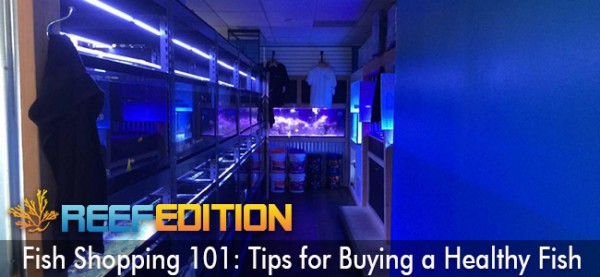
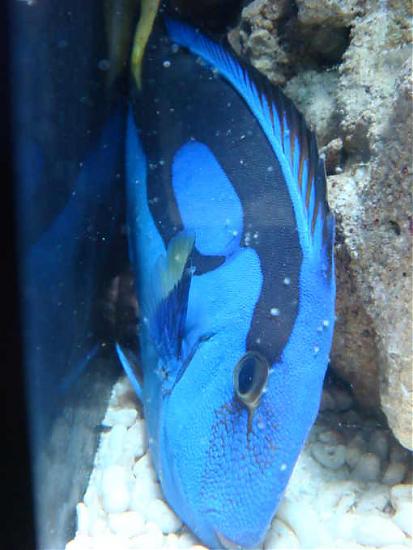
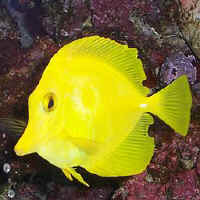
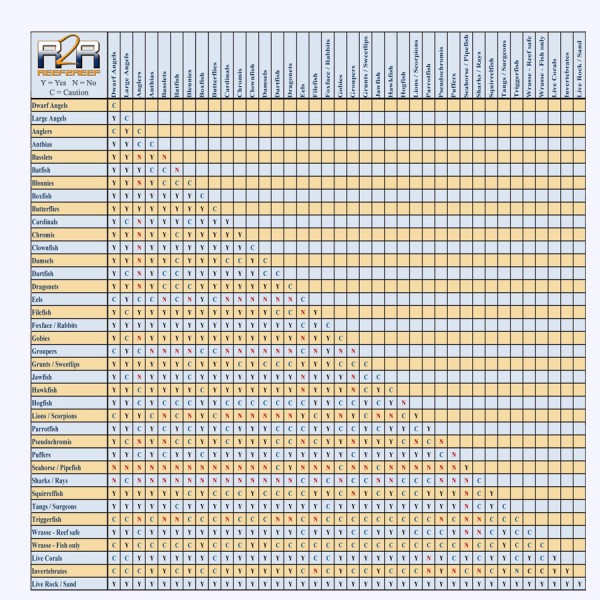
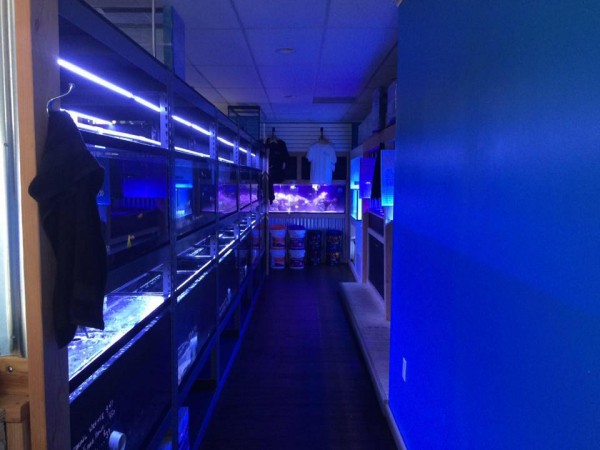

Leave a Reply
You must be logged in to post a comment.